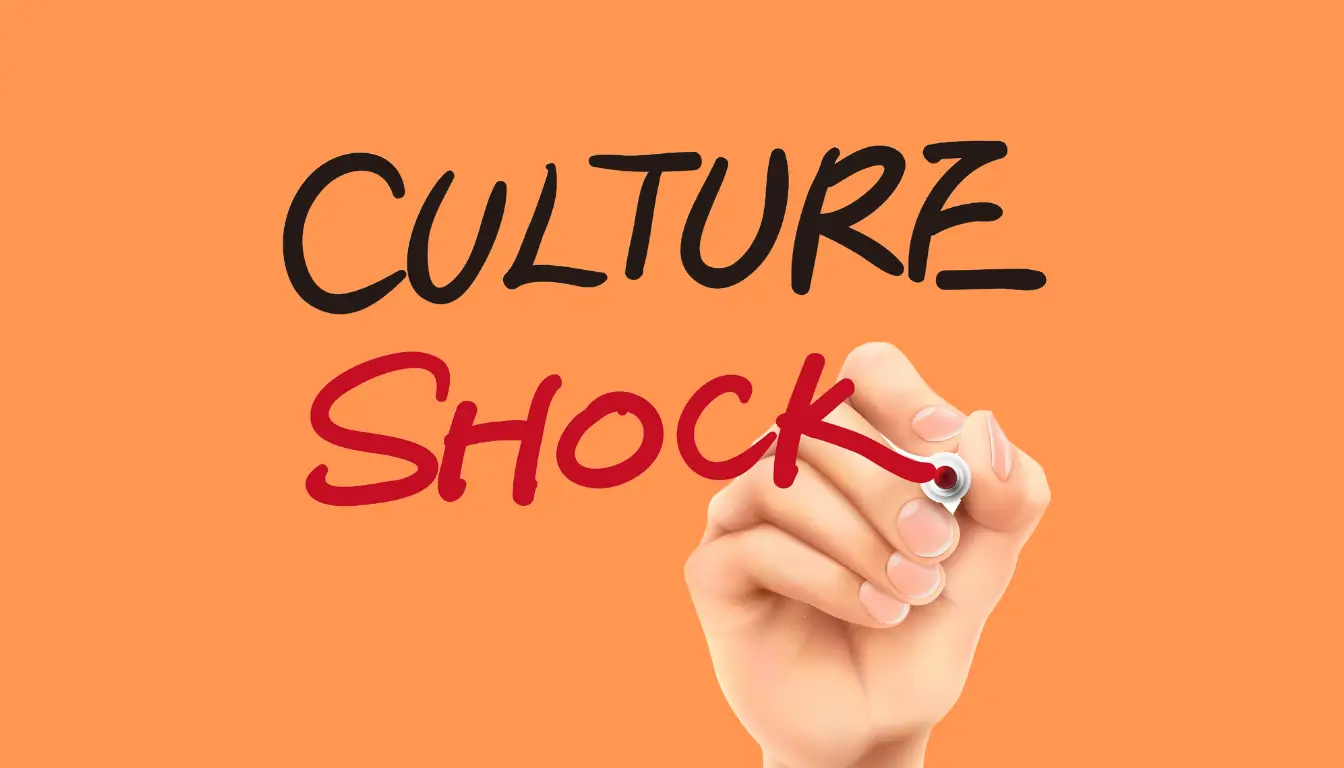Cultural Adjustment and Homesickness: Understanding the 4 Stages of Culture Shock

Living abroad is an exciting adventure filled with new cultures, sights, and experiences. But it can also feel lonely and disorienting. Have you ever wondered why moving to a new country feels so hard sometimes? Let’s break down why this happens and what you can do about it.
What Is Culture Shock?
Culture shock is the emotional and mental response to being in a new culture. It’s normal, and it happens to most people who move abroad—whether you’re a student, traveler, or an expat. Understanding what culture shock is and its stages can help you handle it better. So, let’s explore the four stages of culture shock and how they intersect with homesickness (2).
The 4 Stages of Culture Shock:
1. Honeymoon Stage
This is the “wow” phase. Everything is exciting, new, and wonderful. You feel curious and energized by your surroundings. The food, the language, the people—it’s all thrilling! But while the excitement is high, homesickness can still appear (2).
Think of Madonna when she moved to the UK after marrying Guy Ritchie. She famously expressed enthusiasm for British culture, adopting the accent and customs. But behind the scenes, like many people, she likely dealt with the adjustments of blending her American roots with her new life in England.
2. Frustration Stage
This stage is tough. The differences between your home culture and your new one become more noticeable. Small things, like not understanding the language or missing familiar foods, can feel overwhelming. You may even wonder, Did I make the right choice coming here? It’s okay if you feel frustrated or homesick. It’s part of adjusting (1). In the movie Lost in Translation, Bill Murray’s character finds himself overwhelmed by Tokyo’s foreignness. The language, customs, and pace of life become sources of confusion, highlighting the emotional toll of culture shock.
Here are some tips for surviving the frustration stage:
- Acknowledge Your Feelings: It’s normal to feel homesick. Don’t ignore it; accept that it’s part of the process.
- Connect with Others: Reach out to friends, join local clubs, or find expat groups. Talking to someone who understands can really help.
- Stay Curious: Instead of focusing on the differences, try exploring and learning more about the culture.
- Set Realistic Expectations: Adjusting takes time, and that’s okay. You’re not expected to fit in immediately (3).
Feeling lost or out of place is normal, but remember—you’re not alone. With time, these feelings will pass as you adapt to your new environment.
If you’re looking for more advice and stories from those who’ve been through it, check out Expathy.org. It’s a great resource for expats seeking community and guidance during tough times.
3. Adjustment Stage
Things start to get better here. You find routines, make new friends, and learn the local customs. This is when you might think, I can do this! You start adjusting, and life feels more balanced. Sure, challenges still come up, but they don’t feel as overwhelming. You’ve learned to manage them better (1).
4. Acceptance Stage
You’ve reached the point where you feel at home. You’re comfortable in your new surroundings and can navigate the culture with ease. You might not fully understand everything. There will still be surprises. But now, you know how to handle them. You appreciate both your old and new homes, and you find joy in blending the two (2).

How to Embrace Cultural Differences
Want to really enjoy your new culture? Here’s how:
- Be Open-Minded: Stay curious. Ask questions and learn why people do things a certain way.
- Learn from Mistakes: Don’t worry if you make a cultural misstep. It’s all part of learning.
- Share Your Culture: Bring parts of your home culture with you. Cook familiar dishes or celebrate your traditions with new friends (3).
- Keep a Journal: Writing about your experiences helps you reflect and see how far you’ve come.
Final Thoughts
Adjusting to life in a new culture is a journey. It’s full of ups and downs, but each stage helps you grow. Remember, it’s okay to miss home and feel frustrated. These feelings will pass, and you’ll come out stronger and more confident. Embrace the change, stay connected with loved ones, and keep exploring.
Ready to enjoy your expat life abroad? Use these tips, share your story, and remember: You’re not alone. For more help with cultural adjustment, visit Expathy.org! More than great expert tips, we offer online therapy for expats who struggle with challenges while adjusting to life abroad. Simply follow a few steps, and you'll get helpful and affordable therapy available anytime and anywhere!
References
1. Dudija, N. (2019). Digital transformation: Is gonna be culture shock? In Proceedings of the 1st International Conference on Psychology. https://doi.org/10.5220/0009447602690275
2. Herdi, H., & Handayani, T. (2020). Taking a Look into the Culture Shock Experienced by Foreigners at Rumbai, Pekanbaru. ELSYA Journal of English Language Studies, 2(3), 77–81. https://doi.org/10.31849/elsya.v2i3.4939
3. Winkelman, M. (1994). Cultural Shock and Adaptation. Journal of Counseling and Development, 73, 121-126. https://doi.org/10.1002/J.1556-6676.1994.TB01723.X.
Articles
See all